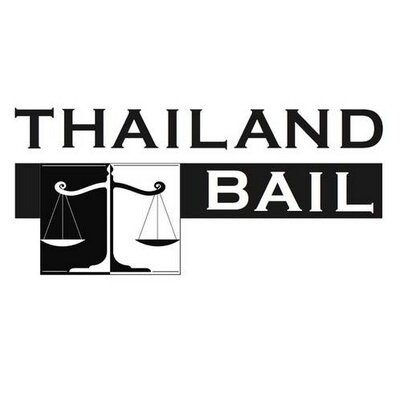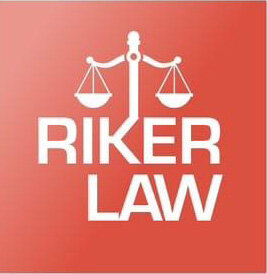Best Bail Bond Service Lawyers in Thailand
Share your needs with us, get contacted by law firms.
Free. Takes 2 min.
Or refine your search by selecting a city:
List of the best lawyers in Thailand
About Bail Bond Service Law in Thailand
Bail Bond Service in Thailand is a crucial aspect of the legal system, providing a mechanism for the temporary release of individuals who have been accused of a crime pending trial. The bail system allows an accused person to continue leading a normal life while preparing for their court case, ensuring they are not unnecessarily detained. Bail may be granted by the police or a court, with conditions often applied to manage the risk of flight or interference with justice. The amount of bail is typically set according to the severity of the charge and the circumstances of the case.
Why You May Need a Lawyer
There are several situations where legal assistance is vital when dealing with bail bonds in Thailand. These include:
- Understanding bail eligibility: A lawyer can assess whether a person is eligible for bail based on the charges and their background.
- Setting appropriate bail terms: Legal counsel can negotiate the amount and conditions of bail to ensure they are fair and manageable.
- Appealing bail decisions: If bail is denied or set at an unreasonably high amount, a lawyer can assist in filing an appeal.
- Ensuring compliance with bail conditions: A lawyer can help you understand and comply with any conditions set for your release to avoid additional legal complications.
- Representing you in court: Legal representation can improve the chance of a positive outcome in your case, through expert navigation of the judicial system.
Local Laws Overview
Understanding the legal landscape of bail bonds in Thailand is essential for anyone involved in the process. Key aspects of these laws include:
- Bail eligibility varies depending on the nature of the offense, the accused's criminal history, and likelihood of reoffending or fleeing.
- Legislation stipulates that in some cases of severe crimes, bail may not be granted.
- The Criminal Procedure Code governs the bail process, outlining the discretion courts and police hold in these matters.
- Conditions attached to bail often include travel restrictions, regular reporting to authorities, and prohibitions on contacting certain individuals.
- Failure to comply with bail conditions can result in revocation of bail and additional charges.
Frequently Asked Questions
What is a bail bond?
A bail bond is a financial guarantee made to the court to ensure that the accused will appear for trial. It allows the accused to remain free until the court date.
How is bail determined in Thailand?
Bail is determined based on factors such as the severity of the charges, the accused's criminal history, the risk of fleeing, and the potential threat to public safety.
Can everyone apply for bail?
No, bail can be denied for serious offenses or if there is a high risk of the accused fleeing or threatening witnesses.
What happens if I cannot afford the bail amount?
If you cannot afford bail, your lawyer may negotiate for a lower amount or different conditions, or you may seek assistance from a bail bondsman who charges a percentage fee for their services.
What are the conditions of bail?
Conditions may include travel restrictions, regular check-ins with the police, or refraining from contacting certain individuals involved in the case.
What should I do if bail is denied?
If bail is denied, you can file an appeal with the help of your lawyer to seek reconsideration from the court.
Is the bail bond system different for tourists?
The process is generally the same for locals and tourists, but foreign nationals may face stricter conditions due to the risk of leaving the country.
Can I leave Thailand while on bail?
Typically, you will not be allowed to leave the country while on bail. Travel restrictions are usually part of the bail conditions.
What happens if I break a bail condition?
Breaking bail conditions can lead to bail revocation and possible re-arrest, along with additional charges that could affect your case outcome.
How long does the bail process take?
The timeline can vary widely depending on the case details, but a lawyer can expedite the process by efficiently handling paperwork and negotiations.
Additional Resources
For additional guidance, the following resources and organizations can be helpful:
- The Royal Thai Police: Provides information on the bail process and necessary documentation.
- Legal Aid Organizations: Offer free or low-cost assistance to those in need of legal help.
- Thai Bar Association: Can connect you with experienced legal professionals knowledgeable in bail laws.
- The Ministry of Justice: Offers resources and information on the rights of the accused and judicial procedures.
Next Steps
If you need legal assistance with bail bond services in Thailand, consider taking the following steps:
- Consult with an experienced criminal defense lawyer who specializes in Thai bail laws.
- Gather all relevant documents and information related to the case to present to your lawyer.
- Ensure you understand all the terms and conditions of the bail to avoid any unintentional violations.
- If financial constraints are an issue, inquire about bail bond services and potential financial aid options.
With the right legal support and understanding of bail bond laws in Thailand, you can navigate the process more effectively and protect your legal rights.
Lawzana helps you find the best lawyers and law firms in Thailand through a curated and pre-screened list of qualified legal professionals. Our platform offers rankings and detailed profiles of attorneys and law firms, allowing you to compare based on practice areas, including Bail Bond Service, experience, and client feedback.
Each profile includes a description of the firm's areas of practice, client reviews, team members and partners, year of establishment, spoken languages, office locations, contact information, social media presence, and any published articles or resources. Most firms on our platform speak English and are experienced in both local and international legal matters.
Get a quote from top-rated law firms in Thailand — quickly, securely, and without unnecessary hassle.
Disclaimer:
The information provided on this page is for general informational purposes only and does not constitute legal advice. While we strive to ensure the accuracy and relevance of the content, legal information may change over time, and interpretations of the law can vary. You should always consult with a qualified legal professional for advice specific to your situation.
We disclaim all liability for actions taken or not taken based on the content of this page. If you believe any information is incorrect or outdated, please contact us, and we will review and update it where appropriate.
Browse bail bond service law firms by city in Thailand
Refine your search by selecting a city.
















